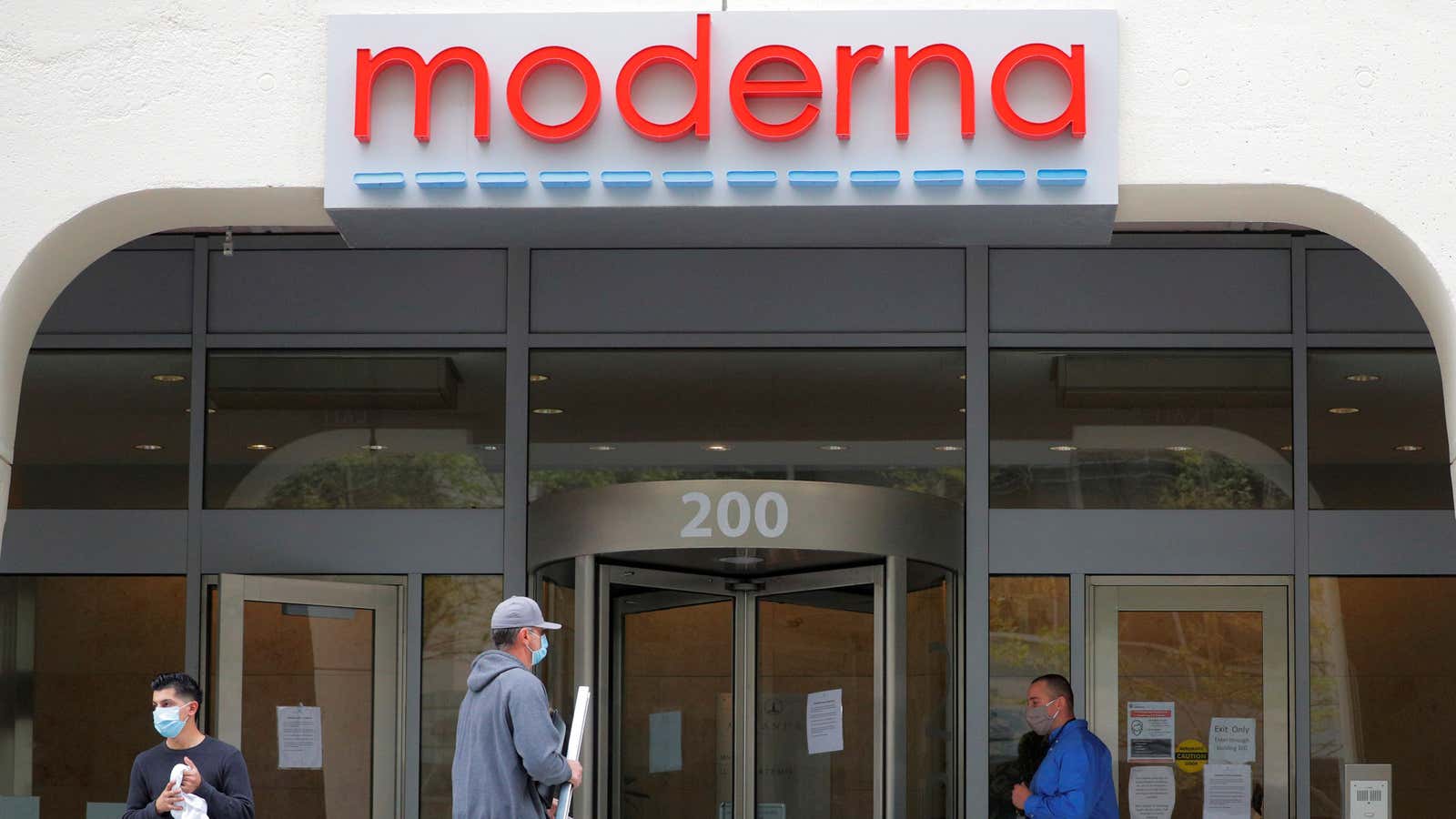When reading news about potential vaccines for Covid-19, healthy skepticism is your friend.
No ones knows this better than pharmaceutical companies developing them. Most of these companies are publicly-traded, which means they’re legally required to notify shareholders (and potential shareholders) of any developments that could change the value of their assets—like a successful clinical trial. Ironically, buried within these dense notices is something helpful for everyone: guidelines for managing your expectations as the world anxiously hopes for a vaccine.
At the moment, 10 of the 155 experimental Covid-19 vaccines in the research pipeline have made it to small trials in volunteers. Some of them, like Massachusetts-based Moderna, have even had success in these preliminary trials and are moving forward to conduct larger ones with more participants.
Enter 8-K forms. Publicly-traded companies are required to submit this paperwork to the US Securities and Exchange Commission whenever something exceedingly positive—or negative—happens within the company. Companies like Moderna filed them recently as their Covid-19 vaccines have entered some form of clinical testing. Included in most of these forms is a forward-looking statement, which essentially serves as a legal caveat. Their language usually includes an assessment of risks like this, which was taken from Moderna’s 8-K filed in mid-May:

The purpose of this statement is to avoid getting sued by any hopeful shareholders should early good news in clinical trials not translate to a positive final product. And there’s a good chance they won’t: Estimates suggest that only about a third of all vaccine clinical trials are successful in the long run.
But even though this legal caveat is largely to protect the company from shareholder disappointment, it’s the kind of mindset everyone should adopt when reading news about clinical trials.
The US Food and Drug Administration requires drug companies to put new products through three rounds of clinical testing before they make it to market. There’s a chance the product could fail every step of the way.
Here’s how other pharma companies have laid out some risks in recently-filed 8-Ks:
- Novavax (8-K filed in May, referencing its 10-A form filed in March): “…commercialization of our vaccines could fail for a variety of reasons, and include the possibility that: our recombinant nanoparticle vaccine technologies, any or all of the products based on such technologies or our proprietary manufacturing process will be ineffective or unsafe, or otherwise fail to receive necessary regulatory approvals or achieve commercial viability; third-party manufacturer facilities will be unable or unwilling to scale-up manufacturing capabilities for our products in a cost-effective manner; the products, if safe and effective, will be difficult to manufacture on a large-scale or uneconomical to market.”
- Inovio (8-K filed in June): …”The Company may not be able to procure the necessary contract manufacturing capacity in order to sufficiently produce INO-4800 [the Covid-19 vaccine] on the planned timeline.”
These 8-Ks aren’t the only places that companies state risks; sometimes, they’re in the initial registration paperwork companies have to file to the SEC, or regular quarterly reports.
These caveats don’t mean that vaccines or other drugs are dangerous or ineffective—it just means that they’re not a magic bullet. They’re part of the public health story. For every infectious disease, including Covid-19, we still need effective treatments, accessible care, and even basic hygiene like hand washing to stop its spread.
